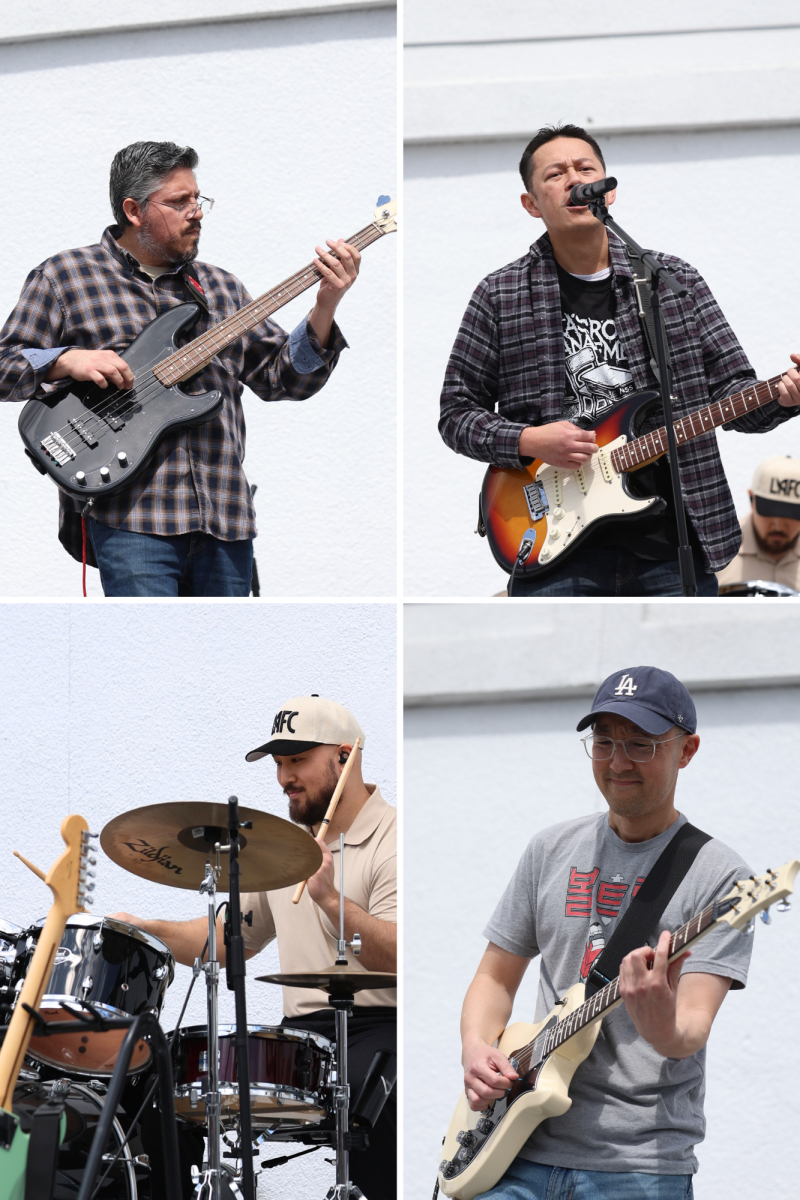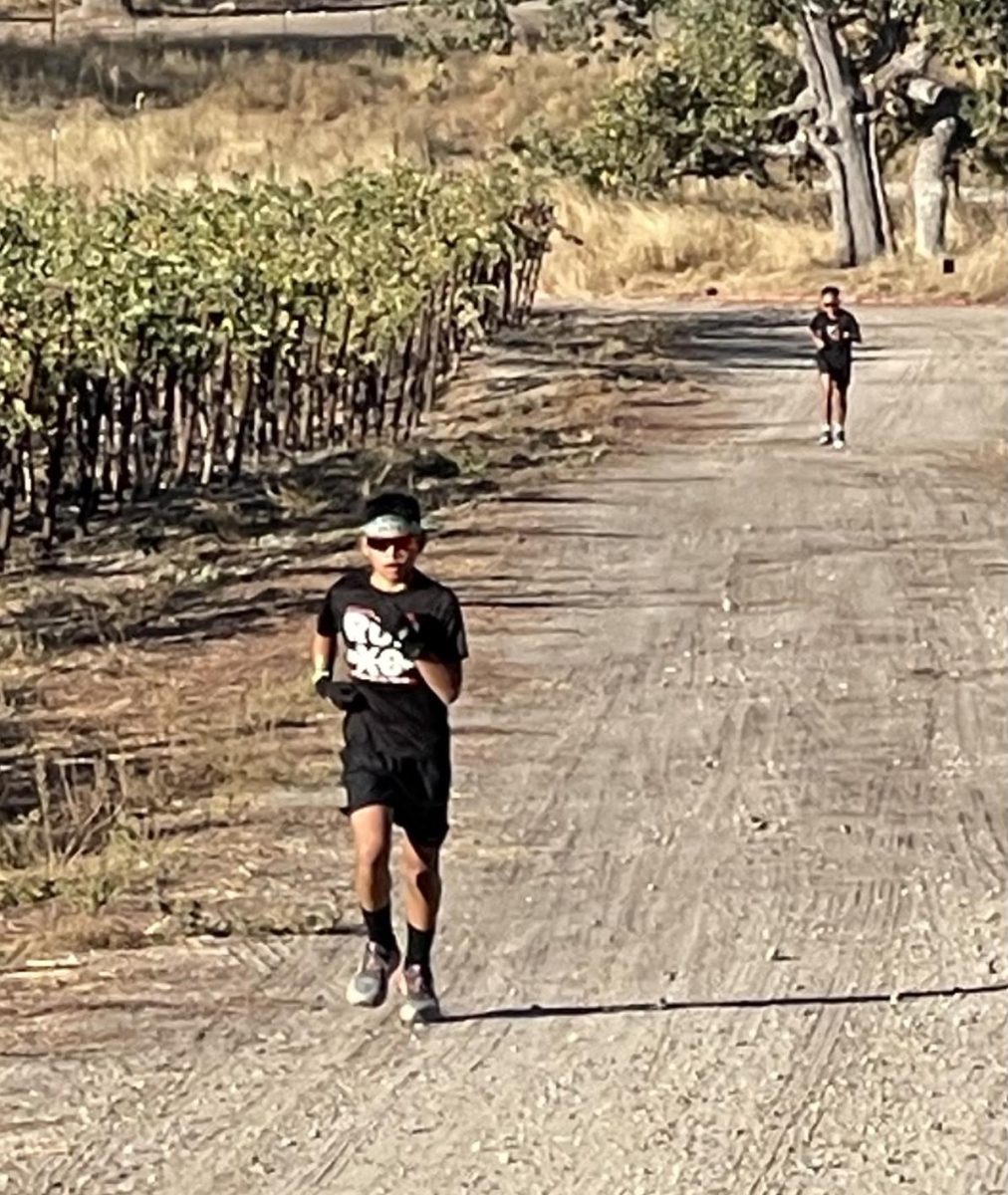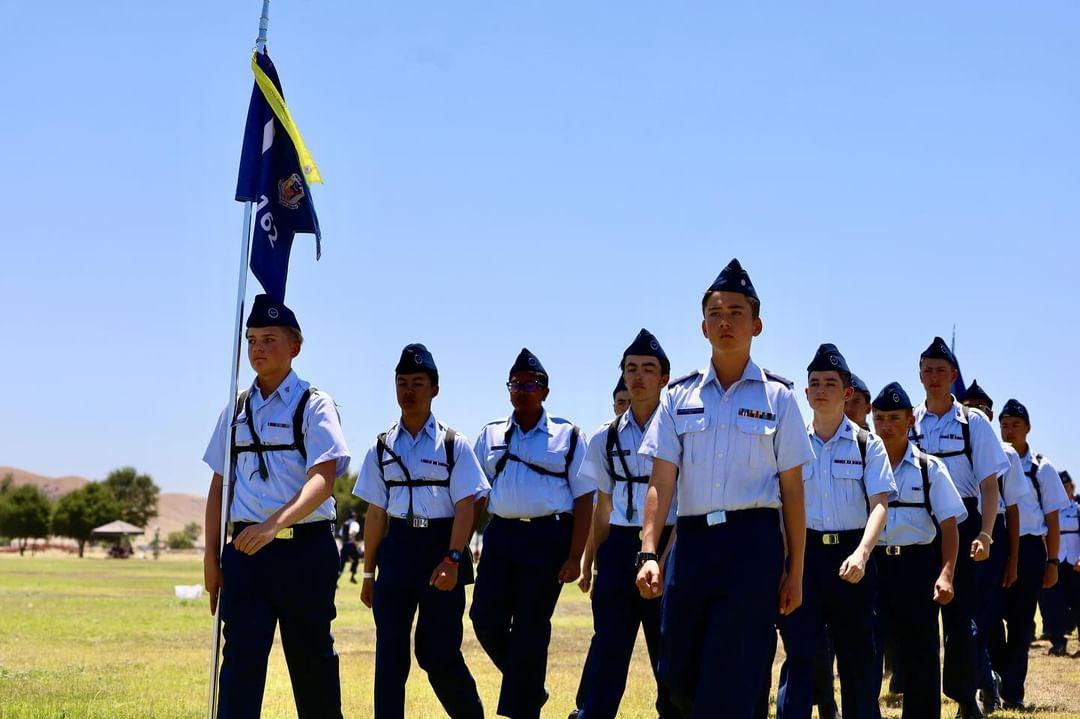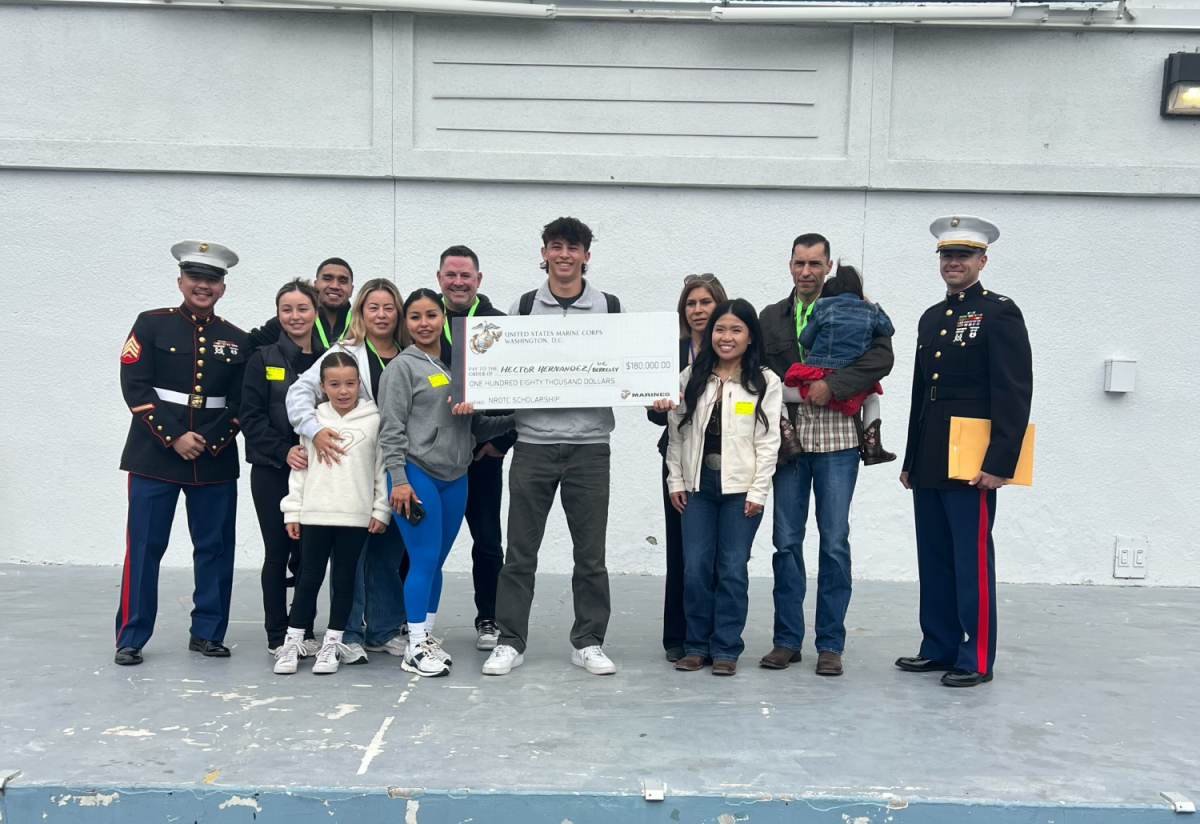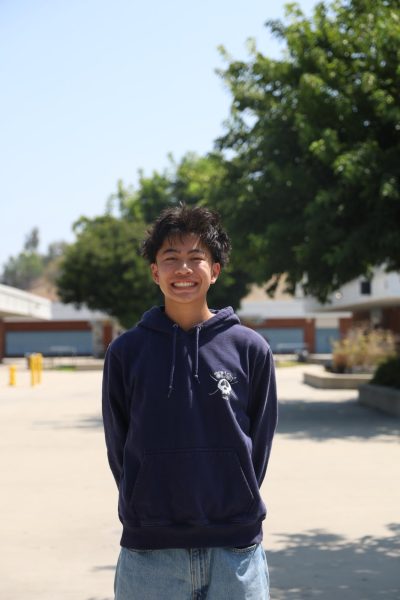Classroom Management rocked the stage on March 28 with performances featuring music that has impacted their personal lives.
Battle of the Bands was the second annual performance that initially started as a rock band competition between students and teachers. However, this year’s event only consisted of performances from Classroom Management during lunch at the stage. Members showcased their note-worthy talents and teamwork, expressing themselves with songs that were a prominent part of their childhoods. This year’s band of teachers was composed of lead vocalist and rhythm guitarist chemistry teacher Garrett Lim, math teacher Joseph Chon, who played the drums, Spanish teacher Gabriel Hernandez, who played the bass guitar and lead guitarist English teacher David Kim.
“I originally wanted to do some kind of rock performance in front of the student body before I retired. I was talking to Mr. Lim over lunch, and I’m like, ‘We should do something before we retire.’ Then I learned that Mr. Chon [and Mr. Hernandez] played instruments, so we had that first practice together to see how things were and it took off from there,” Kim said. “I wanted the opportunity for students who are not part of an official extracurricular activity to have some other kind of creative outlet.”
The performance commenced with “Cherub Rock” by The Smashing Pumpkins. The team aimed for the first song to surprise the audience with its energetic elements and fast beat. Then, they played Weezer’s “Say it Ain’t So” which included a calmer beat and heavy rock sections such as the chorus and outro. The performance concluded with “Where the Streets Have No Name” by U2. Classroom Management hoped that the final song produced a lasting impression on the audience.
“These were the songs we listened to growing up, and we thought [they were] amazing songs,” Lim said. “There are not a lot of songs that are out there right now that move us the way [these songs] do, so we wanted to share that with [the audience].”
The band’s dedication and love for rock music was noticed by several students in the audience. For many, the experience enabled them to seek external connections with the songs performed while providing a broader perspective on the importance of music regardless of age.
“I enjoyed that they didn’t [play] newer songs because a lot of the songs they [played] were ones my parents play and it reminds me of hanging out with them,” junior Ava Razos said. “I thought it was really cool that they took the time to perform for us since they have their own lives and things to do. It was nice to see that teachers are still doing things they are passionate about and that once you get a job, you still get to have fun and do things that are exciting to you. I could tell they were enjoying themselves and it made [the performance] a lot more fun to watch.”
To them, preparation was key to the band’s success when performing. Since September, the band has practiced in the B-Team Room multiple times each month leading up to the performance. Typically, these sessions were 45 minutes to an hour long and held on Fridays. After winter break, the group practiced more frequently to ensure that they were ready for the performance. The band rehearsed the songs during these meetings, working to ensure that they fix errors and play in unison.
“I think the most important thing in a practice is that you get all your mistakes out then learn how to fix [them],” Kim said. “Everybody understands the purpose of [practices is to] make sure that the song sounds good. If there [are] different opinions about what that is going to be, we talked about it.”
The band faced minor issues leading up to the performance. For instance, the original date for the performance was canceled after weather issues prevented them from playing. In addition, the band had to take care of administrative problems and technical difficulties, such as setting up the stage and managing the sound system due to the original system not being suitable for band performances.
“I think a lot of student bands just go up [on stage] and start playing. But there is actually an audio element [where] you need to [set up] the mic, the instruments and the amps correctly if you want to get a big sound,” Kim said. “I am glad that we did not do it [on the original] day because it ended up raining and was really cold. I wanted the band to be comfortable [and] the audience to be comfortable listening to [the performance]. So, I thought the day that we [performed] was the best day to do it.”
Compared to last year’s performance, the band felt more comfortable demonstrating their musical talents. The members enjoyed the opportunity and found joy in connecting with the students and staff through their shared passion.
“It was exhilarating [and] fun,” Lim said. “I was really proud, we were more confident in what we were offering and knew what to expect. My wife and friends were there [and] seeing the students being excited afterward were highlights [of the performance].”
Not only did the performance demonstrate the staff’s collaboration, but the event meant a lot for them personally. The members had the opportunity to revisit their childhood through the nostalgic performance and to remind students of the larger impacts of music as a whole.
“All the different forms of art help us understand ourselves better [and] inform us about the human experience. It inspires, encourages and challenges us all. Music is one form of that. It just happens to be music for me that touched my life very early on. I am hoping that some students can find that too,” Kim said.
In the future, they hope to keep the tradition going and attract more student participation. The members aim to inspire students to start playing instruments and adopt more classic music styles in the wake of modern music culture.
“Today, especially music, is so digitized with streaming platforms. I think the landscape of music has changed so much. When I was younger, I could pinpoint very specific albums and artists that were life-changing for me. But I do not know if that is the same for [the current] generation. I feel like the music is disposable, along with all [these] other arts that we consume. Through the music that we’re sharing, people could get inspired to start listening to not only the old stuff, but good music again,” Kim said. “If through the performance, either our’s or someone else’s student gets inspired to pick up an instrument, get together with some friends and play in front of people, the purpose [of the tradition] has been accomplished.”

